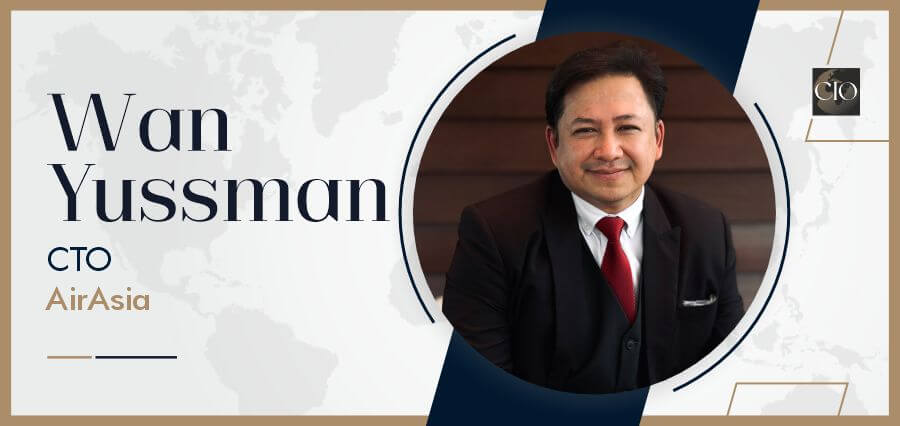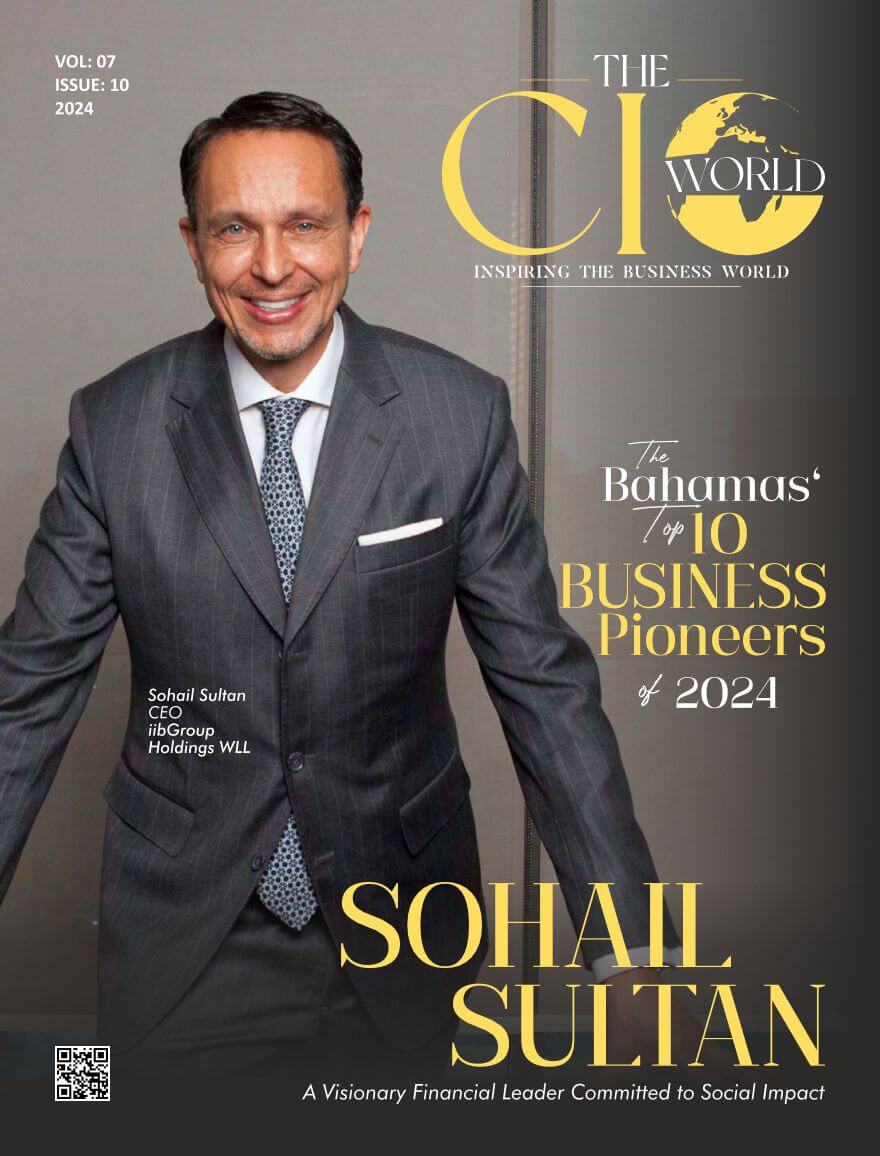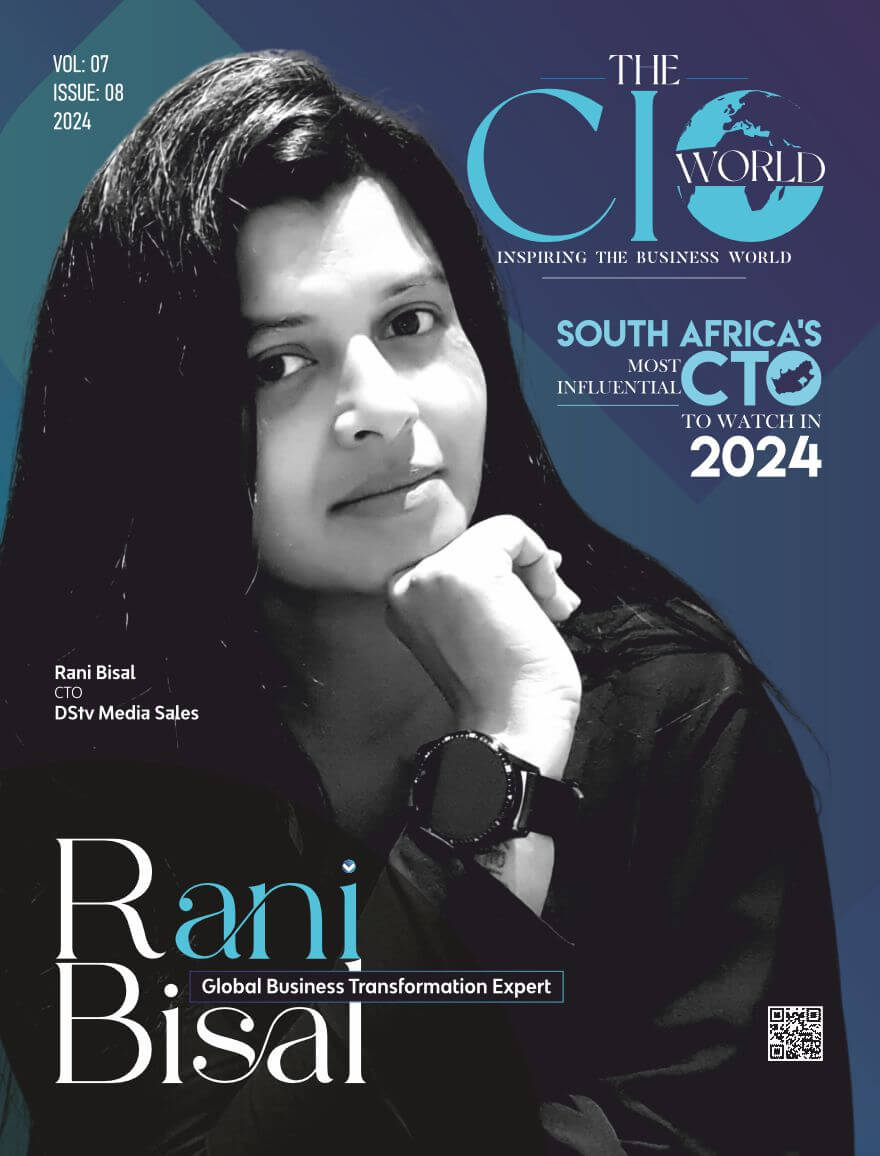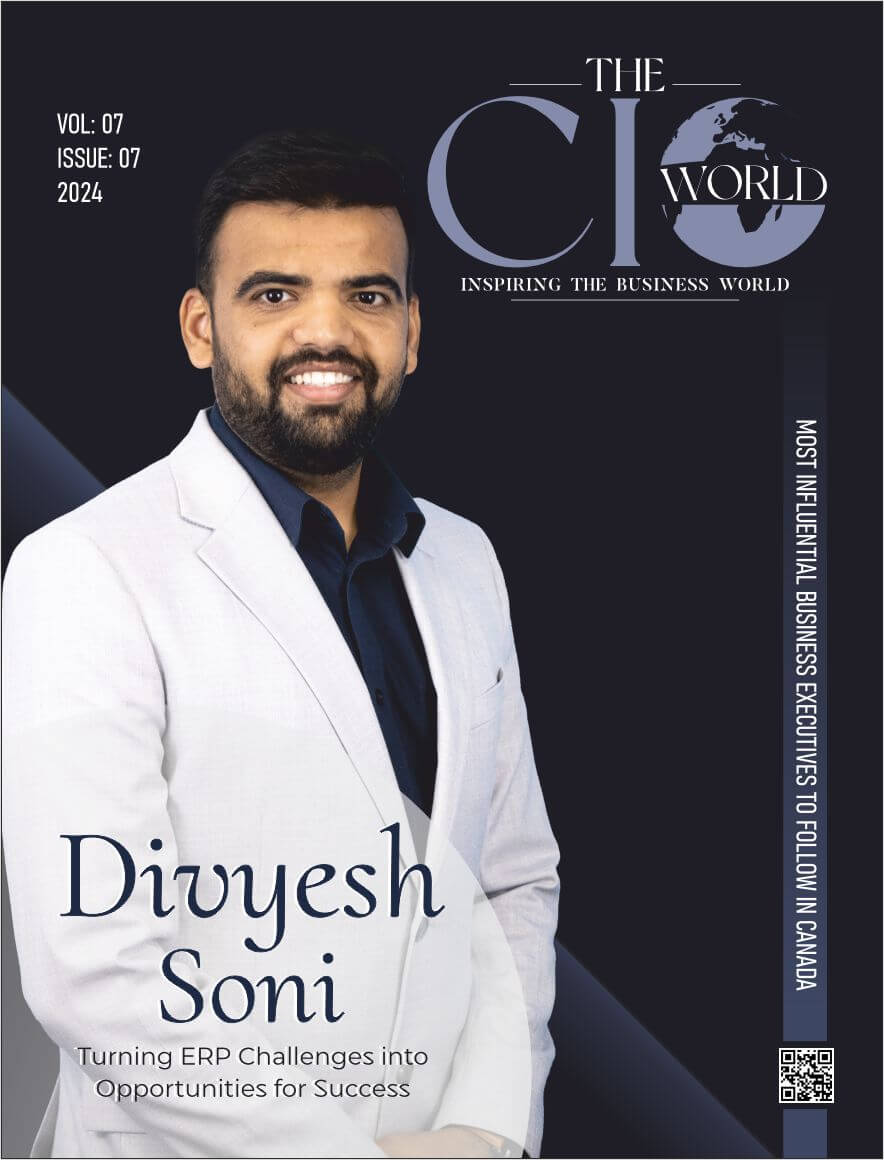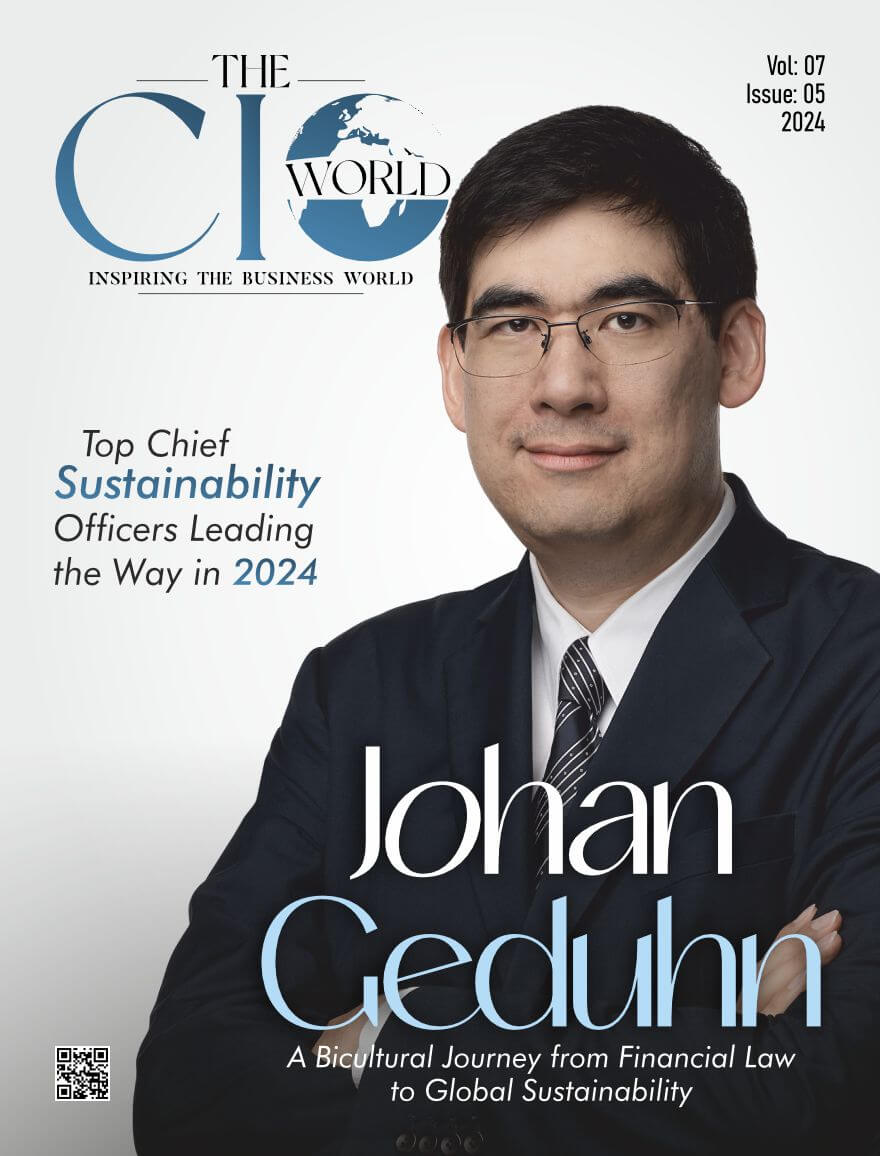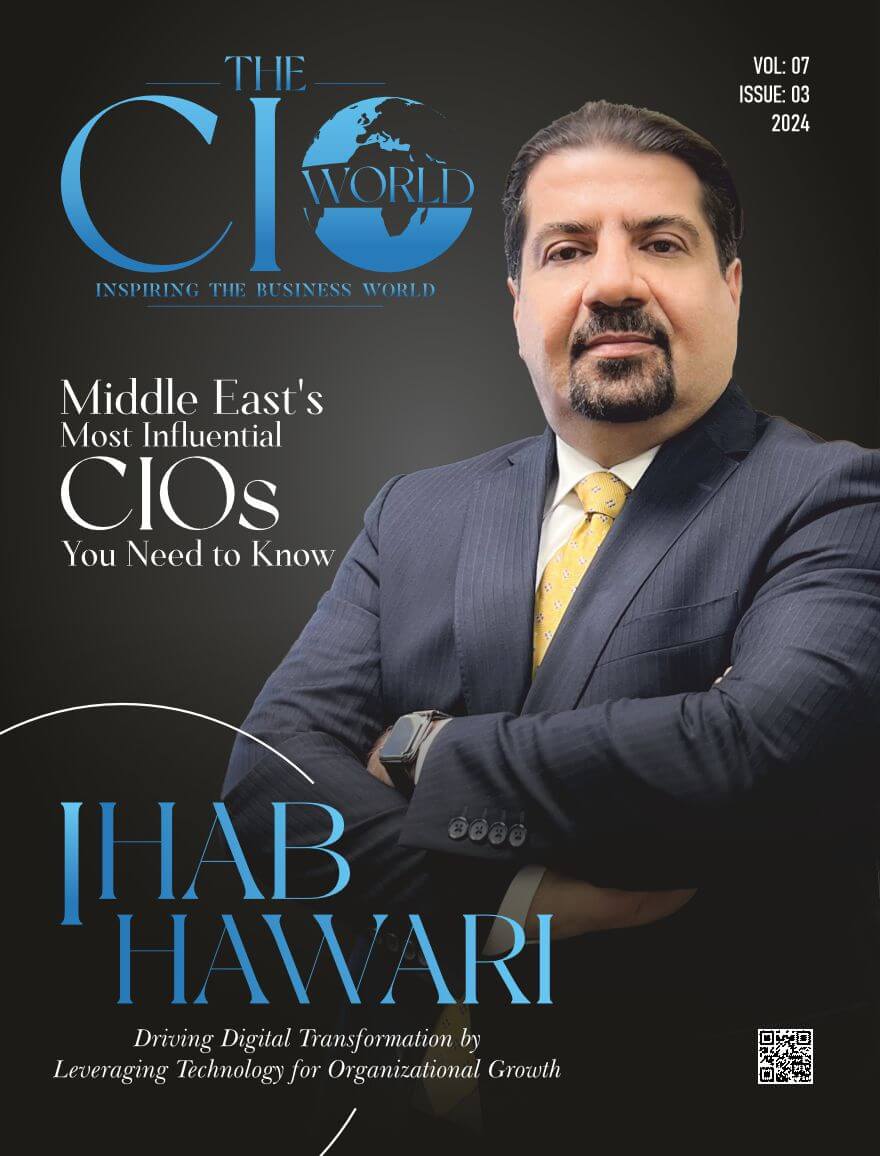Leveraging Technology, Talent, and Innovation Across Diverse Industries!
Challenges are an inevitable part of life, and our approach to them can make a significant impact. Most of us are familiar with the saying, “Challenges are opportunities in disguise,” and although it may seem cliché, it holds a great deal of truth.
For Wan Yussman, this couldn’t ring truer. He has always had a passion for finding innovative and creative ways to solve problems, whether they’re for individuals or companies. His journey in the world of technology has been a remarkable one, spanning over 25 years. He’s known for his expertise in IT management and his ability to use technology to help organizations grow and succeed. But what makes his story even more interesting is where he started.
Being the first born of a career Malaysian diplomat, Yussman’s globetrotting days began at an early age, constantly moving, travelling, switching education systems and having cultural exchanges. His third culture individual roots have played a big role in shaping his career, supporting his adaptability and perseverance, with an expanded worldview, allowing him to be adept at building relationships. He’s a family man, married with four children and lives in Malaysia.
Yussman’s career has taken him through various industries, from aviation to shipping, oil and gas, consumer goods, and more. He’s not just about using technology for the sake of it; he’s all about finding smart, flexible, and scalable solutions to solve real-world problems.
But his story is not just about his professional achievements. Being a CTO at AirAsia, he’s also a mentor, passing on his knowledge to the next generation of tech leaders. His passion for emerging technologies and his commitment to finding practical solutions have made a significant impact on the tech industry.
As we turn the pages of Yussman’s life story, one thing is clear: his journey is far from over. His dedication to using technology to drive growth and innovation is a source of inspiration for anyone who wants to succeed in a world where change is constant.
Below are the highlights of the interview:
AirAsia’s Talent Development Journey
According to Yussman, AirAsia is dedicated to nurturing entry-level talent and helping them become proficient in their chosen field. This involves providing mentorship, guidelines, training on standardization, and use of external training platforms, focusing on technical skills. However, softer skills like leadership and managerial abilities are not emphasized at this stage since the individuals are still mastering their domain. Yussman also relies on his personal unconventional approach to developing talent by introducing them early to older concepts adapted and refined to fit current trends, and techniques acquired from serving 11 other organizations, that would sustain high performance and productivity amongst his operations or delivery teams.. He also instils the right mindset and fosters discipline for talents to balance between being brilliant as basics and being obsessed with projects and innovation, rewarding both equally.
Moving on to mid-level management, AirAsia focuses on teaching the importance of networking, teamwork, problem-solving on a larger scale, and managing people. These skills are crucial, as individuals in this stage already have a solid grasp of their domain. The emphasis shifts from technical proficiency to leadership and motivation.
At the senior management level, Yussman aims to develop servant leaders. This leadership style is essential for achieving results through others. The focus shifts from individual heroism to helping others succeed. As the organization grows, it becomes impossible for one person to do the work of many. Instead, leaders must identify and overcome obstacles to facilitate their team’s success. This approach aligns the goals of the entire team and fosters talent development.
In developing the Leaders Develop Leaders (LDL) program, Yussman is responsible for charting a roadmap for technology leadership development plans and providing training, with a significant focus on talent management. The goal is to inspire his technology leaders to help their team members find a noble cause and align it with their personal goals. This shift from self-centric desires to a greater purpose, such as benefiting society or the community, provides long-lasting motivation and fulfillment. This can include objectives such as promoting women or inclusivity in tech or promoting empathy and social missions in product development. He demonstrates that materialistic desires are short-lived while contributing to a greater purpose brings genuine satisfaction.
Yussman highlights the pattern observed in some of the world’s richest individuals who, once they achieve great wealth, shift their focus to philanthropy and make a positive global impact. Recognizing this pattern, he believes in instilling these values in talent development at an earlier stage rather than realizing the importance of helping others in their later years.
Ultimately, Yussman’s talent development approach involves nurturing technical skills at the entry level, focusing on leadership and teamwork at the mid-level, and developing servant leaders at the senior upper management level. The organization believes in aligning personal goals with a greater purpose to drive motivation and create a positive impact on society.
Creating Intellectual Property and Solving Pain Points
Yussman highlights that technology should be seen as a tool rather than something to be mesmerized by or obsessed with. Its purpose is to address current constraints, problems, and pain points. To develop intellectual property and assets, it is crucial to identify pain points and find ways to utilize existing technology to create solutions. Sometimes, these solutions require creative thinking and assembling different components where the combinations can be disruptive in itself. Furthermore, technology plays a role in fostering entrepreneurship by enabling individuals to solve people’s problems and create businesses indirectly. It is an asset that should be continuously created and utilized. Yussman highlights the importance of creating reusable platforms, which allow for quicker scalability. For instance, developing an application framework that eliminates the need to rewrite certain elements, such as the login page or menu, can save time and effort. Once the platform is established, solutions can be applied to address pain points and create products.
Yussman provides an example of how technology was utilized in PETRONAS Dagangan Berhad (PDB) to create GAS2U, an application that addresses the pain point of purchasing LPG (cooking gas) without a standard method. By allowing customers to order online and have the goods delivered, PDB users and customers found the convenience disruptive and continued to use the application repeatedly. This not only improves the product but also expands the customer base, as customers appreciate the convenience and stick with the app instead of visiting competing stores.
It is important to note that technology should not be valued solely for its shiny and cool aspects. Its true value lies in its ability to solve pain points when combined with other technologies. This approach leads to the creation of more intellectual property. Yussman illustrates the need to develop IT that surpasses what others have or offers a better solution. Reusable platforms play a crucial role in expediting the creation of IT, preventing the need to start from scratch with each new idea.
Yussman shares an innovative idea regarding the use of outdoor payment terminals (OPT) at petrol stations. Instead of solely collecting data, these terminals can be used for advertising purposes. By upgrading the outdoor payment terminals with larger screens, PDB was able to advertise the gas-selling app to its existing customer base without spending additional money on advertisements. This approach leverages the 10-15 minutes of captive audience time while customers are refuelling. He suggests using this time to entertain customers, promote internal products, or even earn revenue through other advertising purposes. This creative use of technology helps to further the business and increase customer engagement. Additionally, gamifying the experience by allowing customers to play simple games and earn loyalty points can enhance the overall value and create a unique selling point.
Empowering Organizations to Make Informed Decisions
Yussman, emphasizing the importance of data democratization, shared, “In the past, decisions were often made without real-time, data-driven insights due to the unavailability of data.” In those times, organizations heavily depended on lag measures, which rely on past data and are ineffective for predicting the future.
With the evolution of technology and the ability to support big data, Yussman passionately advocates for a data democratization agenda. He firmly believes that this agenda aims to make information accessible to anyone, anytime, and anywhere, without the involvement of IT. Yussman passionately stated, “Instead of relying on IT to build dashboards and reports, individuals within the organization can now access data directly and ask their questions.”
However, Yussman underlines that mere accessibility is insufficient. Education plays a pivotal role in ensuring individuals know how to read and effectively use the data. He stressed, “Education should start from the top, with CEOs and board members demanding real-time data for decision-making rather than relying on lag information.” By educating individuals on data availability and equipping them with the necessary tools, organizations can ingrain a culture of data-driven decision-making.
He suggests the use of a Corporate Data Literacy Index to measure improvements in data literacy skills within organizations. This index, as he passionately describes, “Helps monitor and track progress, allowing for the implementation of more programs to promote data-driven decision-making at all levels of the organization.”
Furthermore, he proposes the adoption of an Enterprise Scoreboard, inspired by the principles of 4DX (Four Disciplines of Execution). This scoreboard offers a quick overview of goal achievement and enables leaders to identify areas requiring attention. Yussman ardently asserts, “By focusing on exceptions and aligning the scoreboard with the CEO’s goals, leaders can effectively monitor performance and address issues promptly.”
In organizations where data and decision-making are dispersed across various teams, Yussman underlines the importance of governing data sharing. He champions the use of a data mesh, allowing users to determine who has access to specific data columns, tables, and rows without relying on IT. This measure ensures the protection of sensitive and secure data while ensuring accessibility for those who require it.
Revolutionizing Business Processes
Emphasizing the importance of reusability in innovation and the need for tools that facilitate fast and efficient innovation, Yussman believes in challenging the status quo and encourages his team to identify pain points and create innovative solutions. He displays the value of never being satisfied with the current way of doing things and constantly asking if there is a better approach. He suggests techniques like business process reengineering to evaluate and improve existing processes. This involves analyzing the current process, identifying areas for improvement, and finding ways to streamline and automate tasks. Yussman also highlights the importance of digitalization and leveraging technologies like machine learning and artificial intelligence to optimize processes and reduce human intervention. By challenging traditional methods and embracing new technologies, businesses can achieve efficiency and disrupt the market. He uses the example of AirAsia, where they have implemented online check-in to make travel more convenient for passengers. They have embraced a digital-first approach and aim to eliminate traditional processes. Furthermore, he believes in fostering innovation by providing the right tools and encouraging ideas from all team members, rather than relying solely on the opinions of high-ranking individuals.
In addition, Yussman reinforces the importance of delivering through others effectively, which allows leaders to free up time for important and urgent tasks. He suggests keeping up with emerging technologies and exploring their potential to address organizational pain points. He recommends networking with other innovators, attending conferences, and staying updated through vendor updates. By developing the skill of connecting the dots, leaders can identify the potential of technologies and combine them to create intellectual property.
Yussman also mentions the role of social media, specifically LinkedIn, in staying informed and connected. By actively connecting with others and following relevant feeds, leaders can stay updated on industry trends and developments.
From Startup to Enterprise
In his career, Yussman, a startup enthusiast, followed his advice. Initially focused on Software Engineering (SE), he delved into various aspects of the field beyond coding, including QA, requirements, and database administration. Once he mastered SE, he felt confident enough to explore other areas. He expanded his skillset to include commercial operations and finance, which led him to transition from his role as Senior Director of Engineering at Monster to becoming a General Manager of Software Engineering at Mesiniaga. In this new position, he faced the challenge of running a struggling business without any formal training. His goal was to turn the company around and make it profitable. By addressing troubled projects and implementing a reusable application framework, he successfully stopped the financial losses and transformed the company into a profitable venture within three years. This led to significant growth, with the organization expanding from 70 to 150 employees.
Yussman’s ability to leverage existing IT resources and deliver client solutions swiftly and cost-effectively gave his company a competitive edge. With the company’s financial stability secured, he moved beyond the startup phase and established a medium-sized enterprise with a loyal client base.
Seeking a new challenge, Yussman joined Prestariang, driven by a patriotic desire to contribute to the security of his country’s immigration system. Unfortunately, due to political reasons and concerns about third-party vendors taking advantage of Malaysia, his plans did not materialize as expected.
He wanted to be involved in new technologies, so he joined a small and new company. There, he learned about AI, blockchain, and other innovations. The company was fast-paced, so he had to take on many different tasks without the help of managers. This lets him stay connected to new technologies and work on creating new and different products. The products they made at the company did well, and even big companies like Axiata used their ideas to find new CEOs.
Transitioning to enterprise organizations, such as PETRONAS and AirAsia, Yussman’s focus shifted towards bringing discipline, standards, and certifications to minimize mistakes. Upon joining these organizations, he recognized the need for optimization. For instance, PDB had outstanding payments to vendors dating back to 2011, resulting in service disruptions and missed SLAs. By rectifying payment issues and enforcing penalties for non-compliance, he improved vendor relationships and received first-class service in return. Similar challenges were addressed at AirAsia, resulting in enhanced operations.
During his initial period in enterprise organizations, Yussman prioritized fixing existing issues and excelling in foundational practices. This laid the groundwork for innovation and the implementation of resilient systems and best practices, such as daily disaster recovery simulations and improved backup processes.
Secret to Career Success
According to Yussman, a mentor once advised him to switch industries every four years and switch roles every two years. He has followed this guideline, as he is currently in his third year at AirAsia, transitioning from operations/tech to a more commercial role. He highlights the flexibility of working in IT, as it allows individuals to adapt to various technological environments. He mentions his track record in different sectors such as border control, HR tech, oil & gas, and shipping and logistics, where he gained a deep appreciation for programming. Thanks to the mentorship of experienced directors of engineering, he quickly progressed from a programmer to a tech lead at a young age. This experience was instrumental in establishing tech capabilities within the Malaysian chapter.
Working in multinational companies exposed Yussman to diverse perspectives and cultures, with South African, Russian, Australian, British, American, ASEAN, local and female bosses contributing to his growth. His upbringing as a diplomat’s child—living abroad and frequently relocating—facilitated his ability to adapt and gain a third-party perspective on his own culture. He highlights the significance of always learning and looking for change. Regardless of background, he thinks anyone can advance in their career through skill development and taking advantage of opportunities. He exhorts people to speak up, never give up, and welcome change.
Words of Wisdom
Yussman explained, “Technology is poised to simplify many tasks and has the potential to gradually replace human involvement in various areas. The service desk, for instance, is being substituted by chatbots. Furthermore, as machine learning and artificial intelligence become more reliable, certain routine decision-making processes may be taken over by these technologies.” He emphasized that AI operates continuously without the need for rest or experiencing illnesses, enabling it to work around the clock. In light of this, Yussman advised entrepreneurs to always focus on creating value. By carefully examining the challenges at hand, entrepreneurs can identify opportunities and disrupt the market. “Our objective should be to address pain points and provide effective solutions,” he added.

